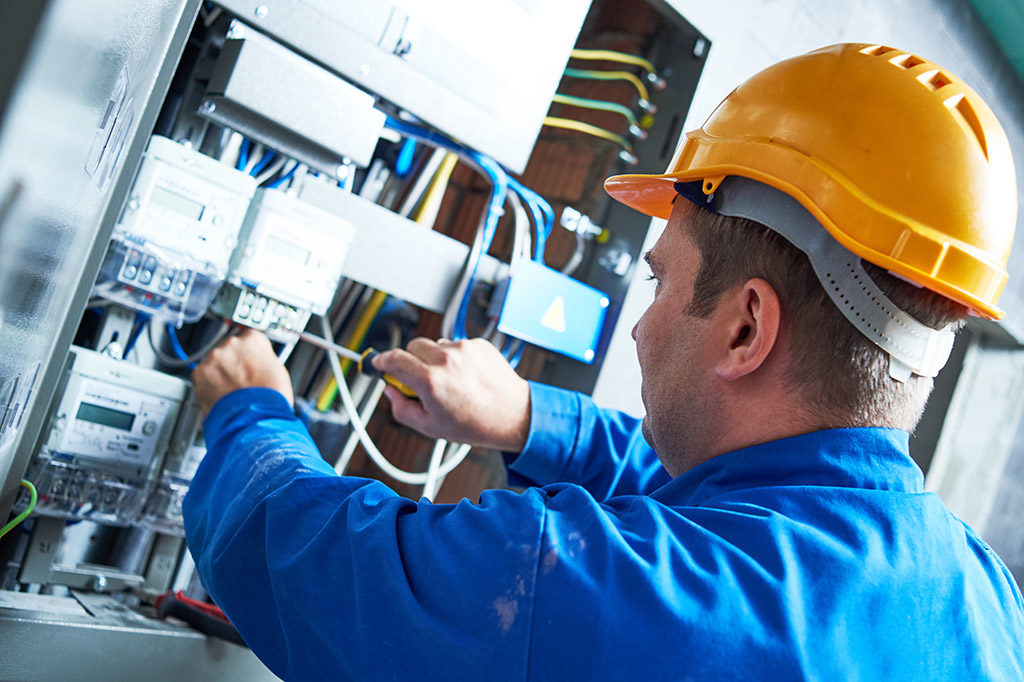
The Workplace and Electrical Hazards | Electrical Services in Shallotte, NC
Did you know that your workplace normally has a supply of a single phase worth 230 volts or a triple phase worth 400 volts? There are some larger infrastructure organizations with monumental voltage supplies, but this particular article will focus on the hazards of the single and triple phase workplaces.
The main hazards present at such workplaces can be brought down to the following:
- Live part contact which causes burns and shocks
- Fires resulting from faults in the system
- Explosions or fires because of ignition in flammable environments
There is a strong link between how electrical environments are handled and the risk of injuries. There is an even greater risk involved in environments where liquids are involved.
Electrical Contact Basics
The impact of electrical exposure is determined by the level of voltage that hits the body. Other than this, the body’s resistance to the current flow and the path the current took to the body are also very important considerations. Our first advice for workplaces would be to heed the advice of electrical services in Shallotte, NC and make the electrical environment as safe as possible.
If an incident does occur though, the employee may not be able to remove himself/herself from the electrical source. This is because the human body is known to be a good conductor of electricity – and touching them can mean you will get the electrical shock too.
In such a scenario electrical services in Shallotte, NC advise that you should first attempt to switch off the source of power. If this isn’t possible, then an object which is a non-conductor of electricity should be used to remove the person from the hazard. This could either be a wooden pole or a fiberglass object.
Employer’s Responsibilities
Employers should have flexible leads and plugs (which are prone to damage), to be visually checked and maintained following a regular schedule. They can even plan these schedules with electrical services in Shallotte, NC.
Another important aspect can be to ensure that flexible cables have outer sheaths on them at all times. These should be firmly clamped onto the wires and earthed when they come out of their terminals. Furthermore, the correct couplers and cable connectors need to be joined together. These joints can then be taped together.
Other than this, electrical services in Shallotte, NC advise that the various socket outlets in the organization shouldn’t be overloaded by an unnecessary number of adapters. Also, all the electrical equipment should have clear markers for where they can be powered off from, in case of emergencies. Lastly, unless molded plugs are being used, the neutral and live connections should be insulated and connected in a proper fashion. If this can’t be done by the organization then electrical services in Shallotte, NC should be contacted.
Controlling Risks
1. Reduce Voltage Levels
Often electrical services in Shallotte, NC install equipment that has 110 volt supply from simple transformers which are centre tapped to earth. This insures that between the earth and the live conductor, the voltage has been limited to around 55 volts.
Another consideration can be that equipment powered from main can be replaced with equipment that is powered using batteries. In terms of lighting, hand-held or temporary fixtures can be used that employ as low as 12 to 50 volts.
2. Correctly Fitted Fuses
Fuses protect devices from an over current. If voltage levels exceed, then the circuit of the fuse cuts off the electricity. This is why the use of fuses in this environment is quite necessary. Electrical services in Shallotte, NC recommends the use of 13-amp fuses for all the equipment that uses above 700 watts.
3. Earthed Equipment
Equipment that is classified as Class 1 by electrical services in Shallotte, NC needs to be grounded in order to be following safety standards. If this is not done, it can cause the equipment’s fuse to blow and cause it to fail when it come in contact with earthed parts. This equipment should be checked using insulation tests.
Class 2 equipment on the other hand, can be identified with symbols of the double square. They have no earthing wire and they need to be insulated in a supplementary manner. All of these components need this in sufficient quantities so that contact will not cause electrocution.
4. Offer At Least One RCD (Residual Current Device)
If the work environment in question uses 230 volts or more, then a RCD acts like additional safety. These are protection devices which limit the time of shocks by allowing rapid disconnection in their electrical supply. They are sometimes even mandatory for portable equipment where hazards like water proximity or others are involved.
The best place to employ these devices is in the socket outlet or switch boards in offices. These devices also come in the form of plug-in adaptors which are even more efficient. This is so because they have sensitivities for current tripping at not more than 30 mA. Even if the electrical system of the office develops a fault, then the device itself will trip. These devices even have a button to test whether the mechanism is functioning properly, which should be used on a regular basis.
Always Carry Out Preventive Maintenance
In order to do this, electrical services in Myrtle Beach, SC advise office environments to conduct visual inspections on a regular basis. They can start with something simple like looking for signs of faults or damages, so hazards can be prevented in the future.
It is also recommended by professionals that in-house or electrical services in Myrtle Beach, SC, should be employed to have electrical fixtures inspected on a regular basis. If hazards are found, they should be fixed right away!
Mister Sparky Myrtle Beach
For all the times we asked you to contact electrical services in Myrtle Beach, SC, why look any further? You can visit our website for scheduled or emergency services 24/7! Your safety is our priority.

